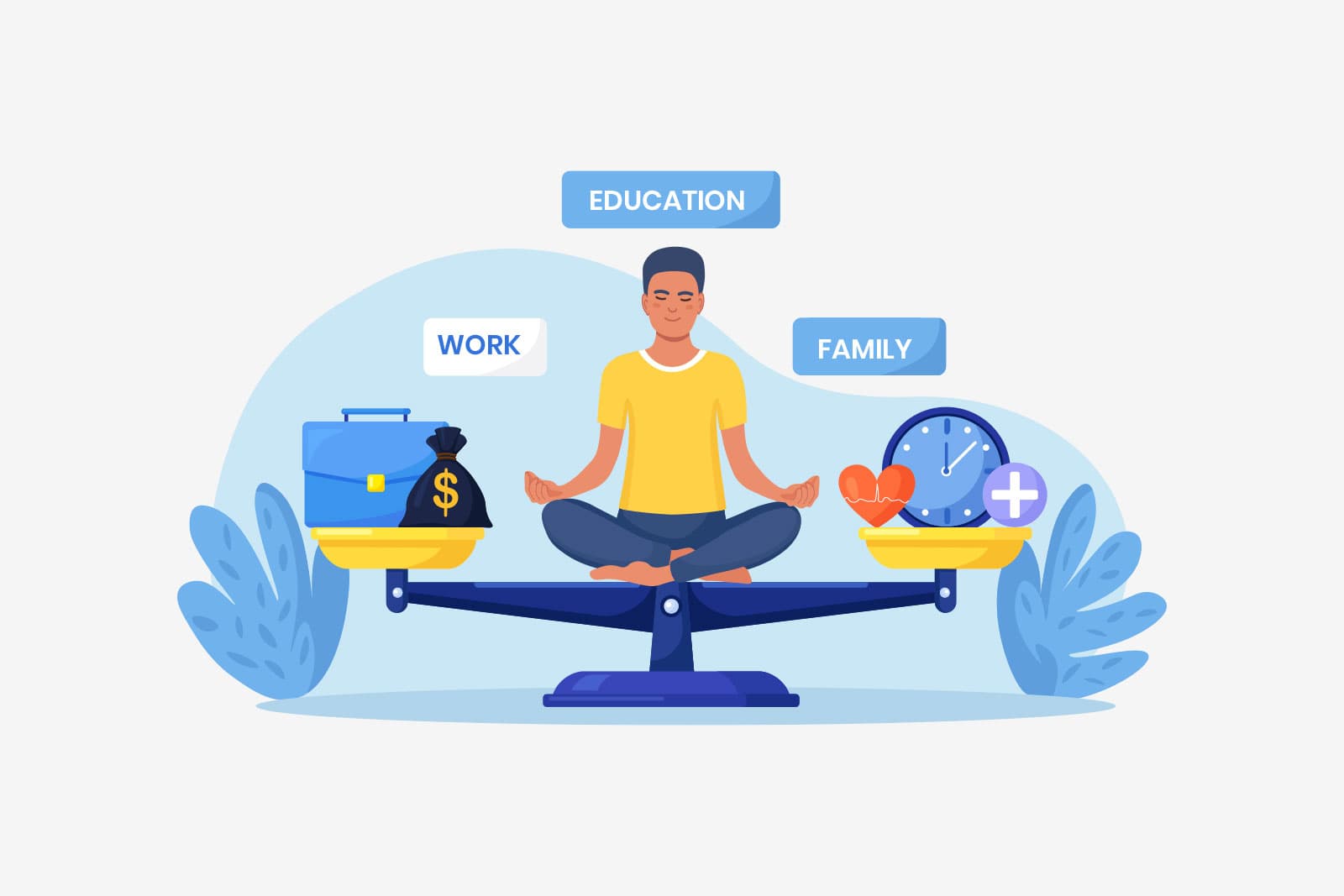Balancing Work, Family and Education in Nepal
Published at: Oct 20, 2023

In Nepal, as in many parts of the world, the pursuit of education can be a challenging endeavor, particularly when it's weighed against the responsibilities of work and family. With 15.1% of the population under poverty and employment rate at only 76.2% (Ministry of Finance), dedication to one's education, job and the family unit is a difficult task. A vast majority of the population relies on subsistence farming, which is why balancing these essential aspects of life is a journey of determination and resilience.
The Drive for Education in Nepal
Education is highly valued in Nepal. It's seen as the key to a brighter future, and parents often make significant sacrifices to ensure their children have access to quality education. The desire to learn and achieve higher levels of education is shared by many, whether young students seeking a university degree or working professionals looking to enhance their skills.
Challenges of Balancing Work, Family, and Education
Time Constraints: The most significant challenge faced by individuals striving to balance work, family, and education is time. A day often feels too short to manage the demands of a job, family responsibilities, and the additional commitment of attending classes or studying.
Financial Constraints: Higher education can be expensive, and the cost of tuition, books, and other expenses can strain family budgets. This financial pressure often necessitates individuals to work full-time jobs to support their education.
Emotional and Mental Strain: Juggling these three significant aspects of life can be emotionally and mentally taxing. The constant need to shift between roles and meet expectations can lead to stress and burnout.
Nepal's Determined Individuals
Despite these challenges, Nepalese individuals are known for their resilience and determination. They understand the significance of education in shaping their lives and the lives of their families. Here are some inspiring stories of individuals who have mastered the art of balancing work, family, and education:
1. The Working Mother: Sita, a working mother from Kathmandu, wakes up early every morning to prepare her children for school. After her full-time job, she rushes to night classes to pursue a degree in business management. Her goal is to secure a better future for her children and inspire them to strive for their dreams.
2. The Rural Scholar: Raju, hailing from a remote village in the Himalayas, balances working as a farmer and pursuing an online education. He understands the importance of agricultural knowledge in his region and is determined to learn about modern farming techniques to improve crop yields and provide for his family.
3. The Lifelong Learner: Shanta, a retiree in her 60s, has never lost her curiosity. She balances her family responsibilities with online courses that feed her passion for history and art. She is a living testament to the idea that learning knows no age limit.
Nepal's Supportive Community
In Nepal, it's not just individual determination that aids in balancing these commitments. The community plays a significant role, providing support and encouragement to those juggling work, family, and education. Families, neighbors, and friends often chip in to help individuals in their quest for knowledge.
Online Education's Role
Online platforms like NepalEdu have emerged as invaluable resources in the pursuit of education. They offer flexible learning options that cater to the unique needs of individuals striving to balance their various commitments. With the ability to access resources and courses from the comfort of their homes, learners can manage their time more efficiently.
The Transformative Power of Education
The experiences of individuals who successfully balance work, family, and education serve as powerful reminders of the transformative power of education. It's not merely about acquiring knowledge but about how that knowledge can lead to positive changes in one's life and the community at large.
Education opens doors to better job opportunities, empowers individuals to make informed decisions, and nurtures critical thinking and problem-solving skills. It also fosters a culture of continuous learning, a trait that's essential in an ever-evolving world.
Moreover, the impact of educated individuals extends beyond their own lives. They become role models within their communities, inspiring others to embark on their educational journeys, and thus creating a ripple effect of positive change.
As the nation continues to invest in education and create more accessible learning opportunities, the stories of Sita, Raju, Shanta, and countless others become symbols of hope and inspiration for the generations to come. Nepal's future is being shaped by the resilience and courage of its learners, proving that the pursuit of knowledge knows no bounds.